
This year, the International Human Rights Day on 10 December marks the beginning of the 70th anniversary of the Universal Declaration of Human Rights (UDHR).
Proclaimed by the UN General Assembly on 10 December 1948 “as a common standard of achievement for all peoples,” the Declaration set out what we now know as fundamental human rights to be protected by governments around the world.
On this Human Rights Day, we bring you stories of people from Europe and Central Asia who have stood up for their rights and those of others. They have contributed to equality and justice, improving lives, preventing human suffering, and reminding us that human rights are universal values.
UDHR Article 1. All human beings are born free and equal in dignity and rights.
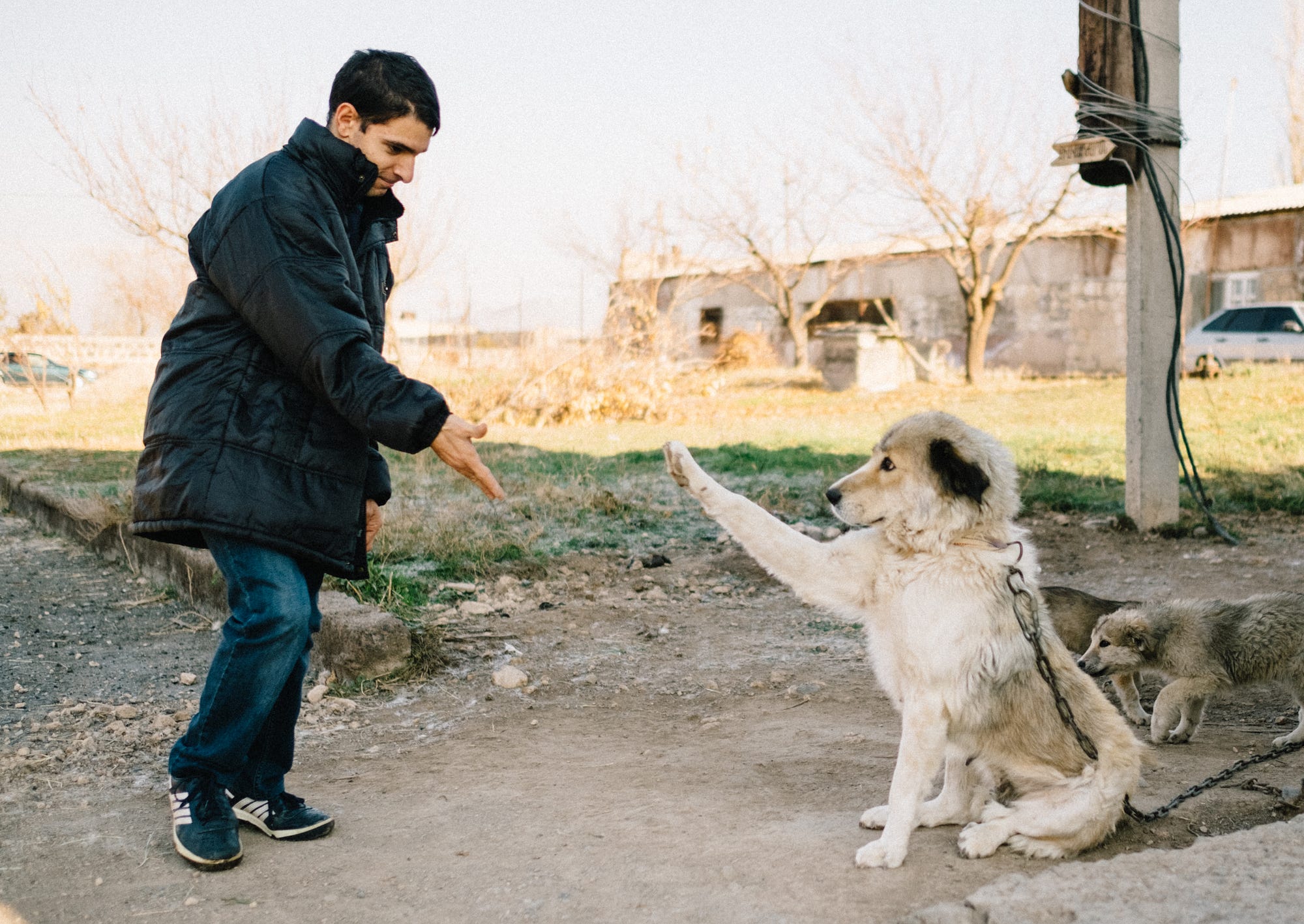
“My parents left me in the hospital when I was diagnosed with infant cerebral palsy. My twin brother grew up in the family, but I lived in the orphanage. I have forgiven them. I will help them myself one day if I can.
I could not walk and had to use a wheelchair. When I saw my friends from the orphanage walk, play together and run around, I would say to myself: ‘You, too, must learn to walk on your own.’ It was difficult. It required a great deal of time and effort, but I finally reached my goal.
One day I saw one of my orphanage friends walking in torn shoes. It made me feel so bad that I offered to repair his shoes. This is how I started to learn shoe-making, first with my favorite craftsman in the orphanage, and then I went to a specialized college for three years. Now I get orders.”
Article 3. Everyone has the right to life, liberty and security of person.
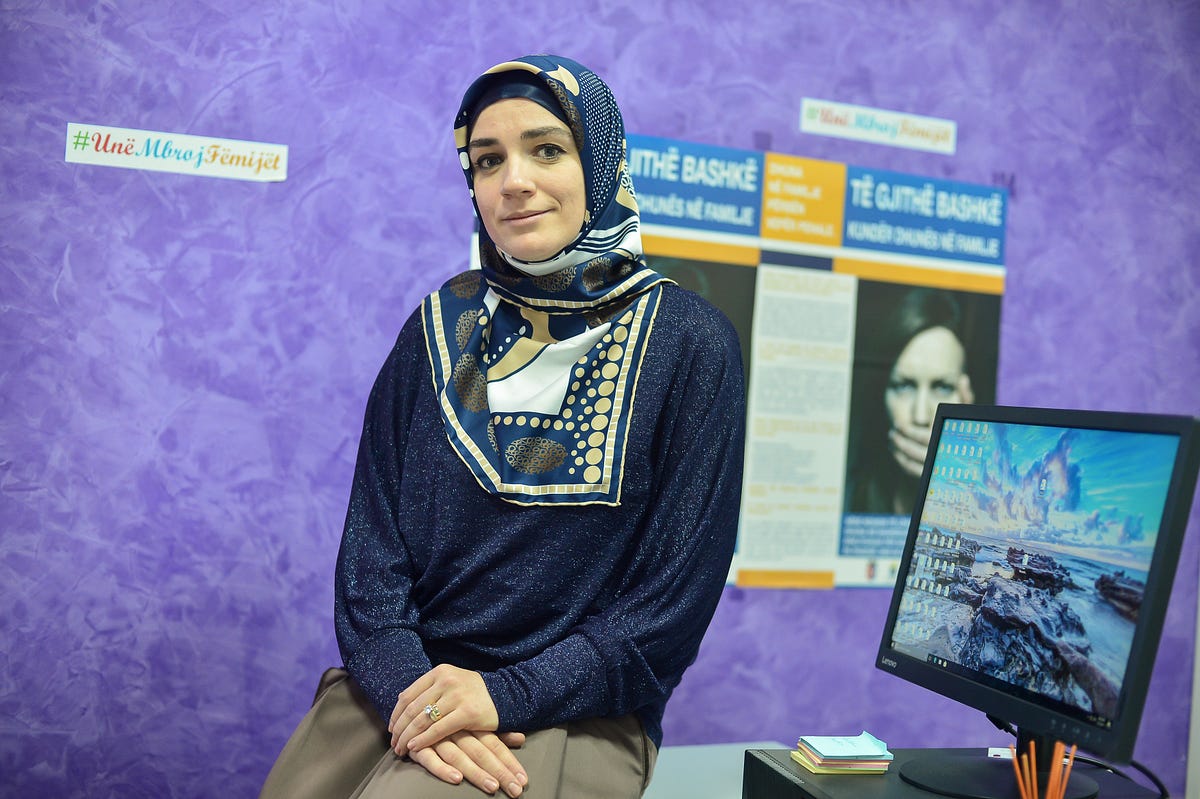
“Every day at work I learn about severe cases of violence against women and girls of all forms. As a Local Coordinator for the domestic violence referral mechanism at the Municipality of Tirana, I have turned this work into my life mission to help survivors of gender based violence.
The good news is that I have seen a growing number of reported cases; women are breaking the silence and are speaking out. During this year, our mechanism has already managed over 90 cases of domestic violence. I have seen women benefit from programs the Tirana Municipality initiated; I have seen women fully integrate in society and transform their lives. This motivates me even further to do all I can to help women restart a journey free from violence.”
Article 5. No one shall be subjected to torture or to cruel, inhuman or degrading treatment or punishment.
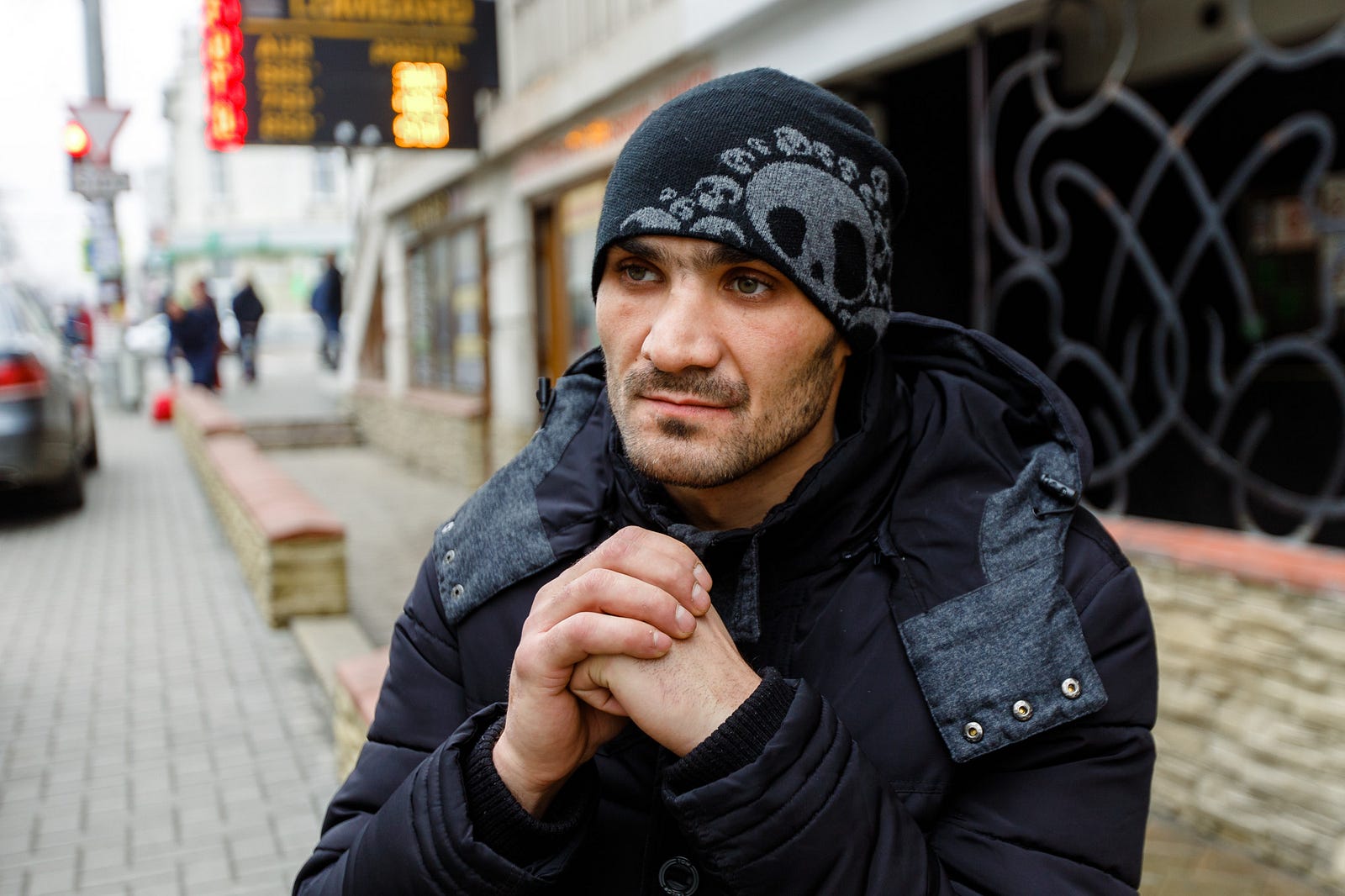
“When I was serving my sentence in prison, I was badly beaten by the prison chief and two officers. I was handcuffed, turned with my face down and beaten. I cried out in pain and my screams were heard everywhere. All this was recorded on the CCTV cameras. I asked to be taken to the medical unit, but they refused to record my injuries there and told me I had been drunk.
Everyone called me ‘kamikaze’ because I decided to seek justice. I began to file complaints, asked my relatives and friends to secretly help me reach different institutions. And while the litigation was going on, I was constantly watched and psychologically pressured, and at theprison chief’s orders I received lots of threats from other prisoners.
I want to tell everyone who’s been a victim of torture and humiliation in prisons — bring out your misfortune to the public in every possible way. I know it’s very hard to withstand [the pressure], but don’t remain quiet. Today all the persons who beat me have been convicted and are in prison. In the end, everybody receives what he or she deserves.”
Article 6. Everyone has the right to recognition everywhere as a person before the law.
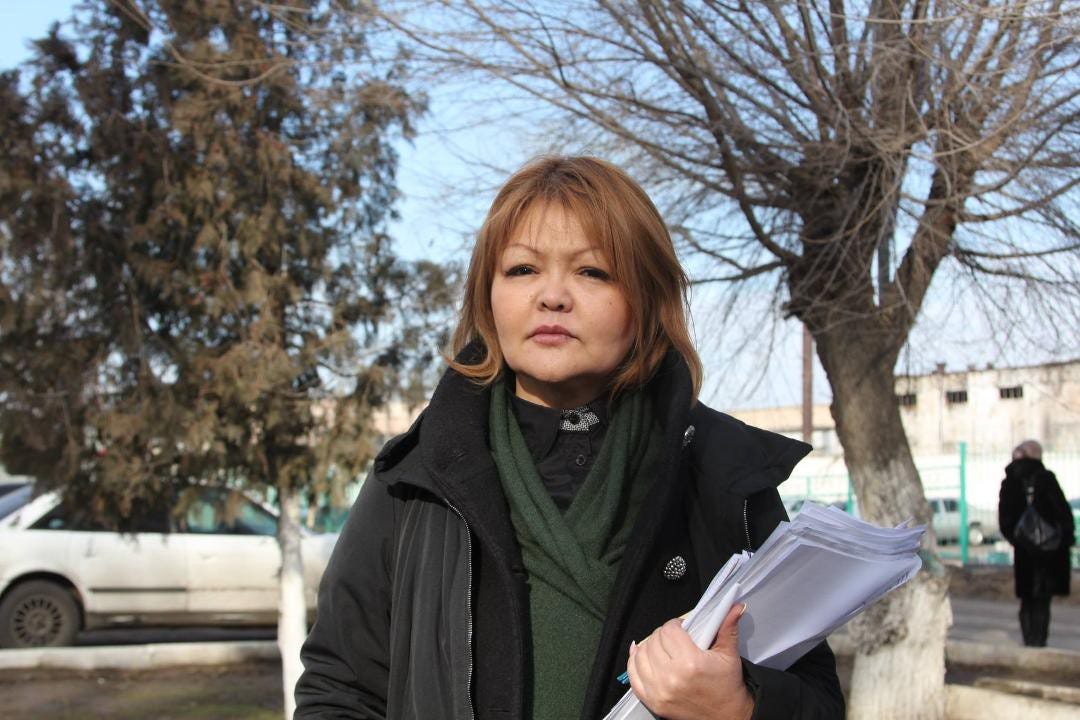
“I provide legal assistance, often free of charge to victims [of gender-based violence]. I chose this profession because I myself suffered from sexual harassment in my student years.
The biggest problem [with gender-based violence] is the silence around the committed crime, since the honor of the family and shame often takes precedence. As a result, offenders remain unpunished and continue to commit crimes against other women. There are other problems, too, such as the society’s condemnation and persecution of the victims, the lack of free legal assistance to victims.
I believe that the value of society should not be measured by the availability of natural resources such as oil and gas, but by the respect for human rights, especially for women. I will fight for the rights of women and girls until they cease to be ‘second class’ in society.”
Article 7. All are equal before the law and are entitled without any discrimination to equal protection of the law.
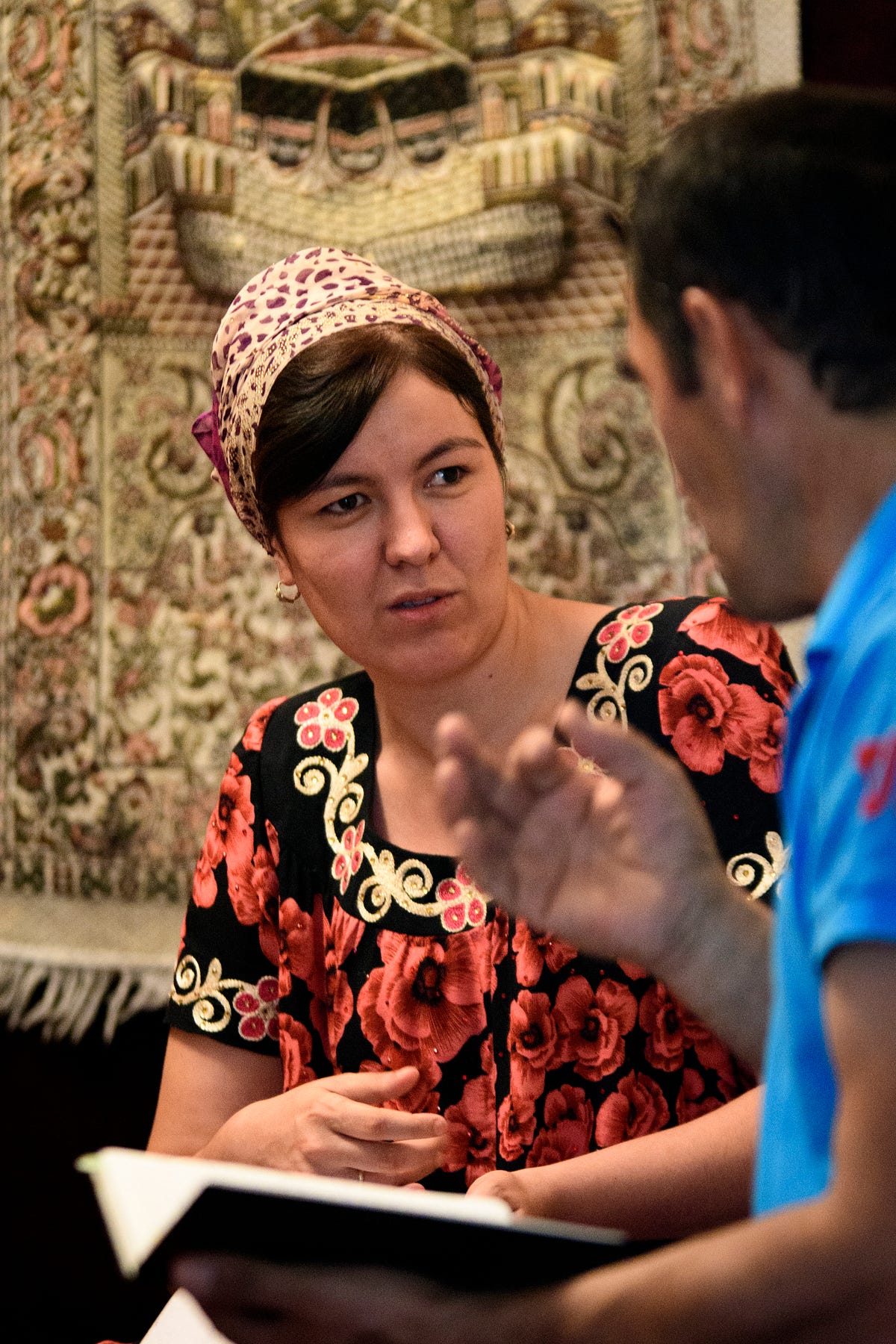
“Even when I was a child I wanted to be a judge. When I [volunteered at a Legal Aid Center], I saw how lawyers usually sent off people with disabilities between the offices, treating them [like dirt.] That’s when I decided for sure to become a lawyer and provide legal aid to people with disabilities.
I’m one of the five children in the family; three of us have some kind of disability. I have weak eyesight. It was not easy [to start my NGO Noil], especially in the beginning. It’s particularly hard with people who have deafness, because I cannot see them and they cannot hear me. It takes time to get used to it. Once a week, we invite a translator into sign language so we can assist people with deafness.
During the first four months of the project alone we received 135 clients. We receive calls from people with disabilities from rural areas. [You can just imagine] how much need people with disabilities have for legal aid.”
Article 8. Everyone has the right to an effective remedy by the competent national tribunals for acts violating the fundamental rights granted him/her by the constitution or by law.
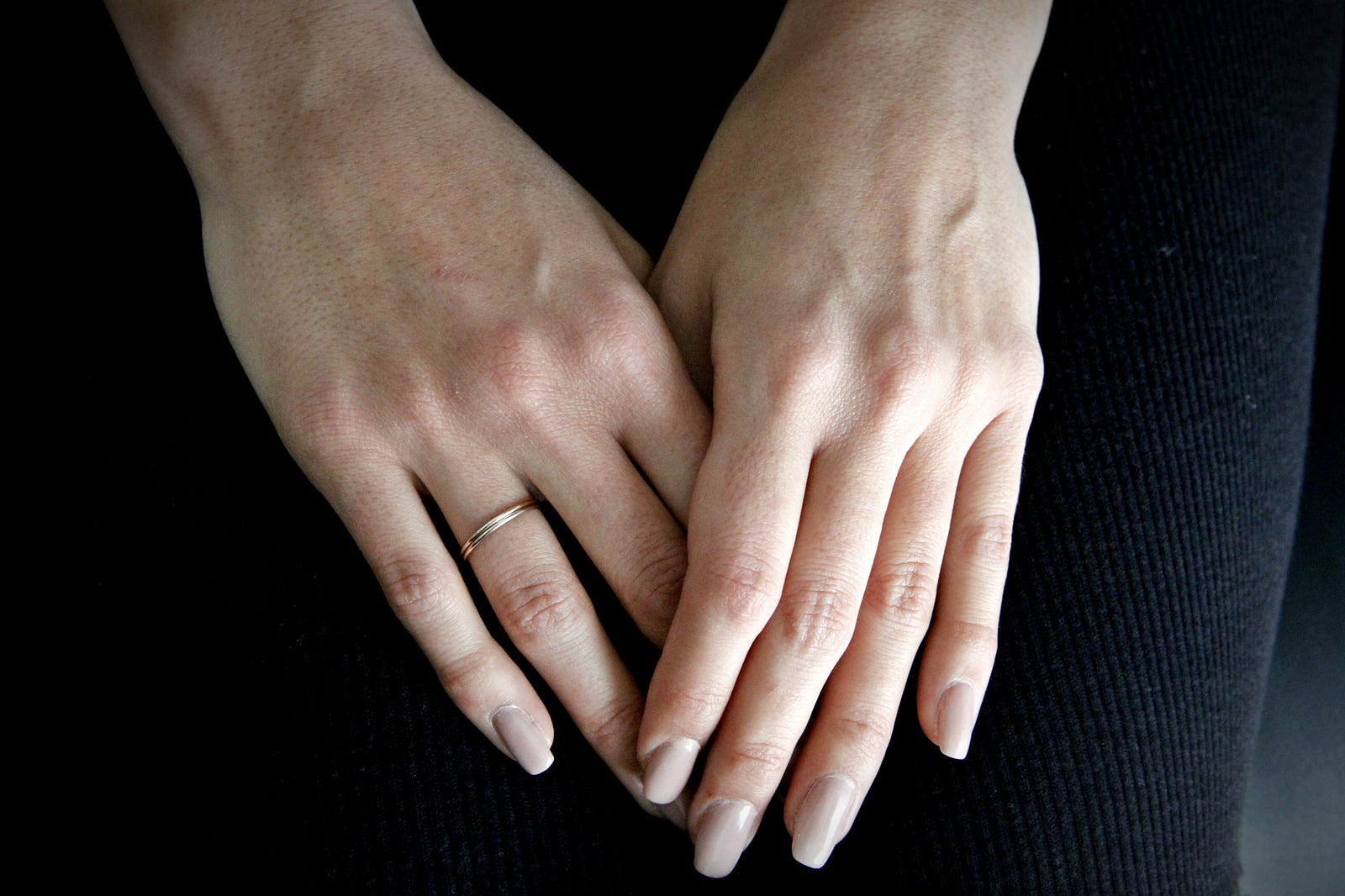
“In the beginning everything was going well. I finally had a job and could provide for my family. But soon, the owner of the place started sexually harassing me. I decided to ignore it for the sake of my family; we needed the money. But the harassing wouldn’t stop. So I decided to report the case to the police. I quit my job.
Things started to get better. I met my husband, we got married and had our first son. I never mentioned the harassment to my husband, because I was afraid he would leave me. Living in a remote village, the mentality is different; these things are seen as a ‘disgrace’.
I almost forgot about the case, until one day, I got a call from the local mediation office. They had received my case from the prosecutor’s office and were ready to help me out. The Criminal Code of Kosovo* provides that all criminal offences punishable by up to 3 years of imprisonment may be sent to the mediation office. I panicked. I had kept the secret for so long and now I wanted it to stay that way. I went to the mediation office and requested that they keep my case in confidentiality. They explained to me that the mediation procedure guarantees confidentiality; it is faster (the procedure ends in no more than 90 days) and the expenses are low. The accused party also had an interest in making the procedure easier and agreed to hold the mediation session. Thankfully, in a matter of weeks we reached a solution without others finding out. The defendant had to pay a symbolic sum and partially compensate for the damage caused.
Even though the sentence might have been low, I felt content. For the first time in a while I felt empowered. Who knows, maybe one day I will share my story with others.”
Article 10. Everyone is entitled in full equality to a fair and public hearing by an independent and impartial tribunal, in the determination of his rights and obligations and of any criminal charge against him.
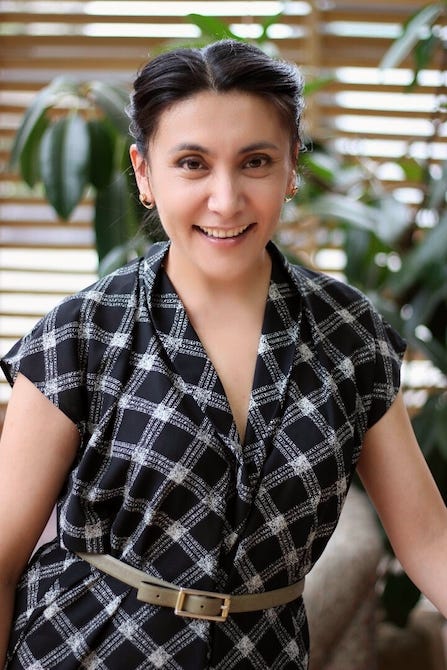
“I never thought sexual violence would be such a challenging case to defend. [But] people still have patriarchal views and still believe it is okay to punish women, even kill them. It [feels] like we [are] at war, an invisible war aimed at destroying women and girls.
When I took the rape case to follow, I was shocked by the assigned judicial sentence; the penalty was far from fair. The perpetrator got three years and of course, we stepped in immediately to appeal for a stricter penalty. We won — he will be imprisoned for eight years now.”
Article 7. All are equal before the law and are entitled, without any discrimination, to equal protection of the law.
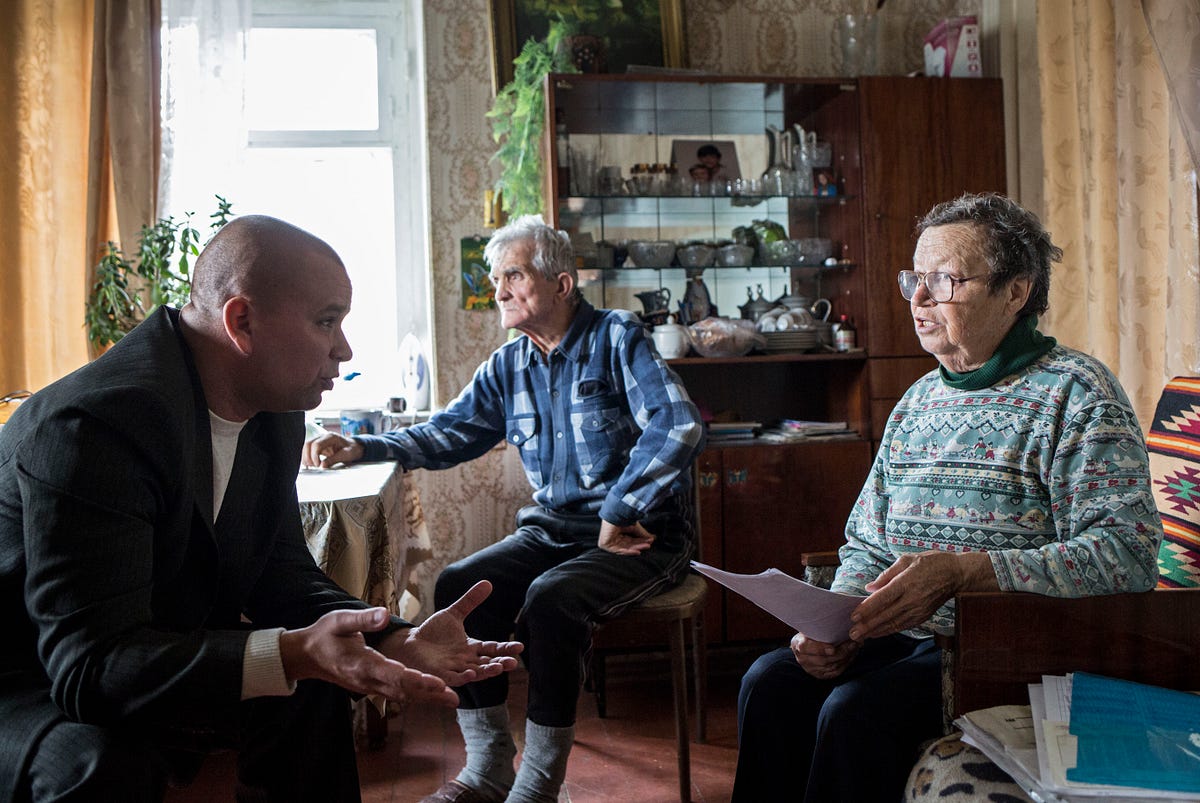
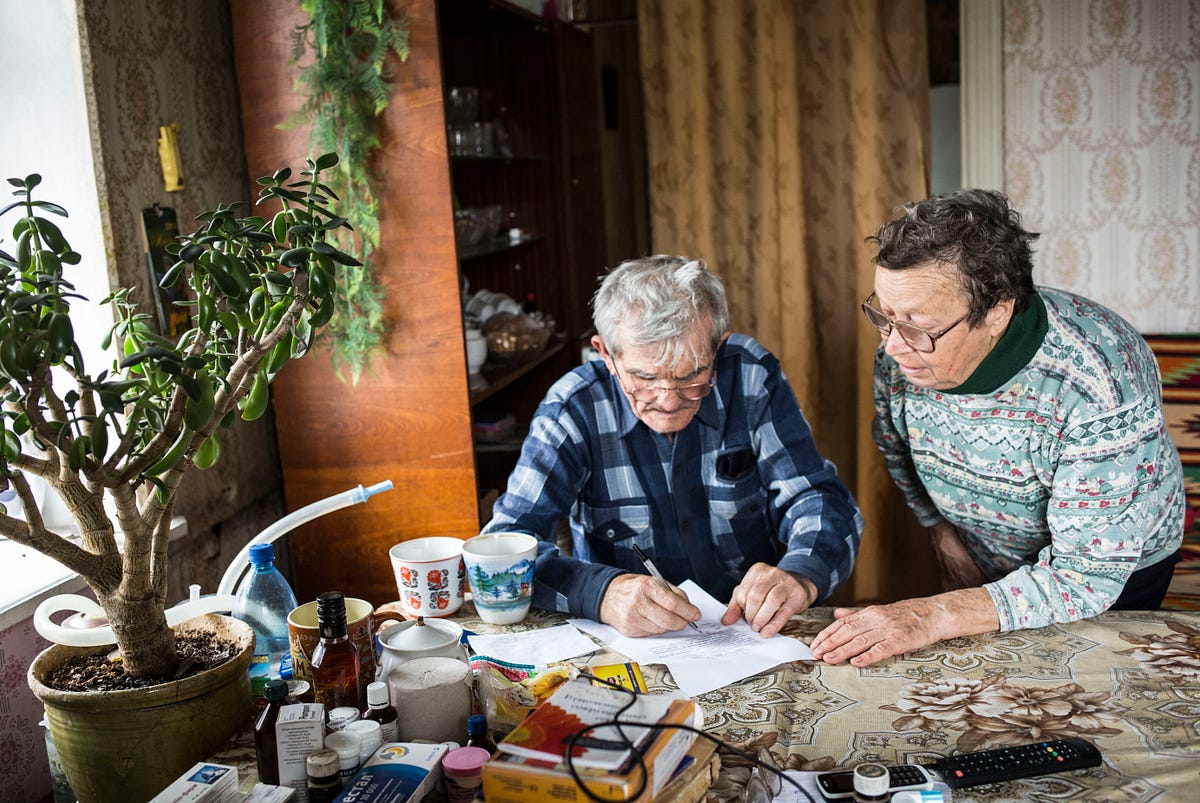
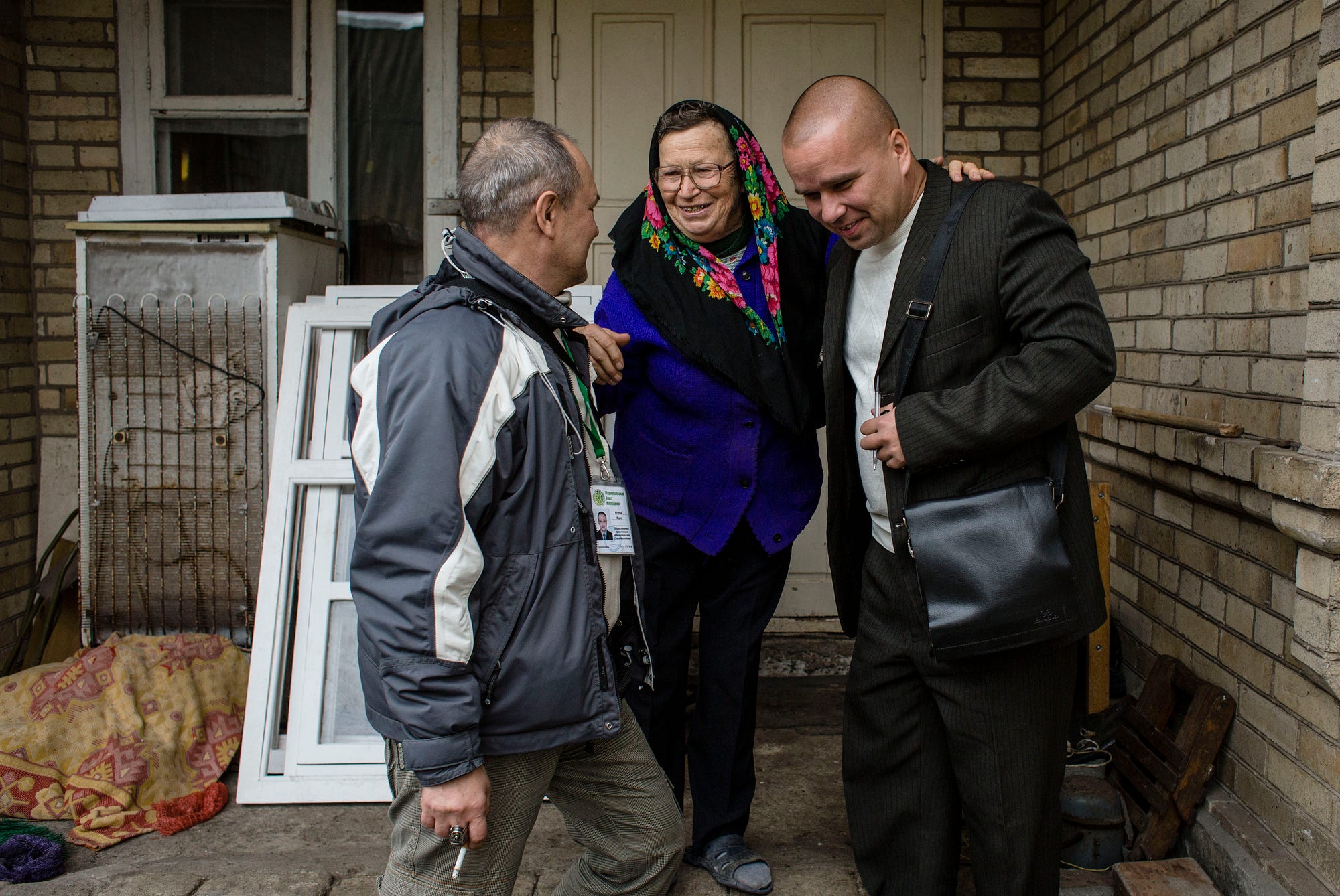
“It must have been March or April when the postman brought us the letter from the local energy company. They had fined us for allegedly tampering with the electricity meter to pay less for electricity. The sum of UAH 4,200 (about USD 160) is a lot of money for us — we’re both retired. Our monthly pension is just about half of that. What was even more difficult was the thought that someone accused us of fraud.
We tried to prove that it was the electricians who had installed a faulty electric meter in our house, but nobody believed us. I even began having nightmares where I was arguing all night that we are not thieves.
The company ignored our complaints. No lawyer wanted to take our case. Thankfully, in July I found Oleksiy Kalynovych, a lawyer at the Legal Aid Office. He said the amount in the dispute was too little for lawyers, they knew they wouldn’t earn much from our case. Kalynovych immediately took our case, wrote an official complaint and personally delivered it to the energy company. A month later, the company cancelled the fine. It was such a relief. My nightmares finally stopped.”
Article 21. Everyone has the right of equal access to public service in his country.
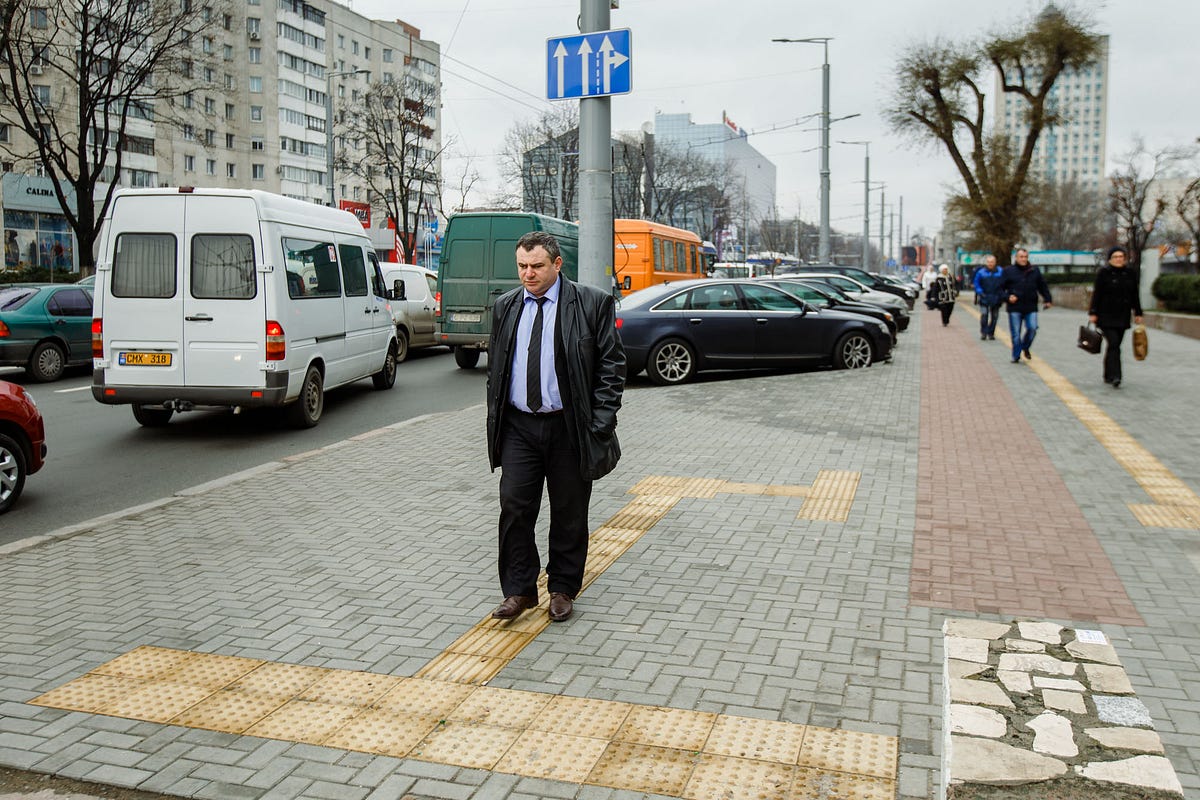
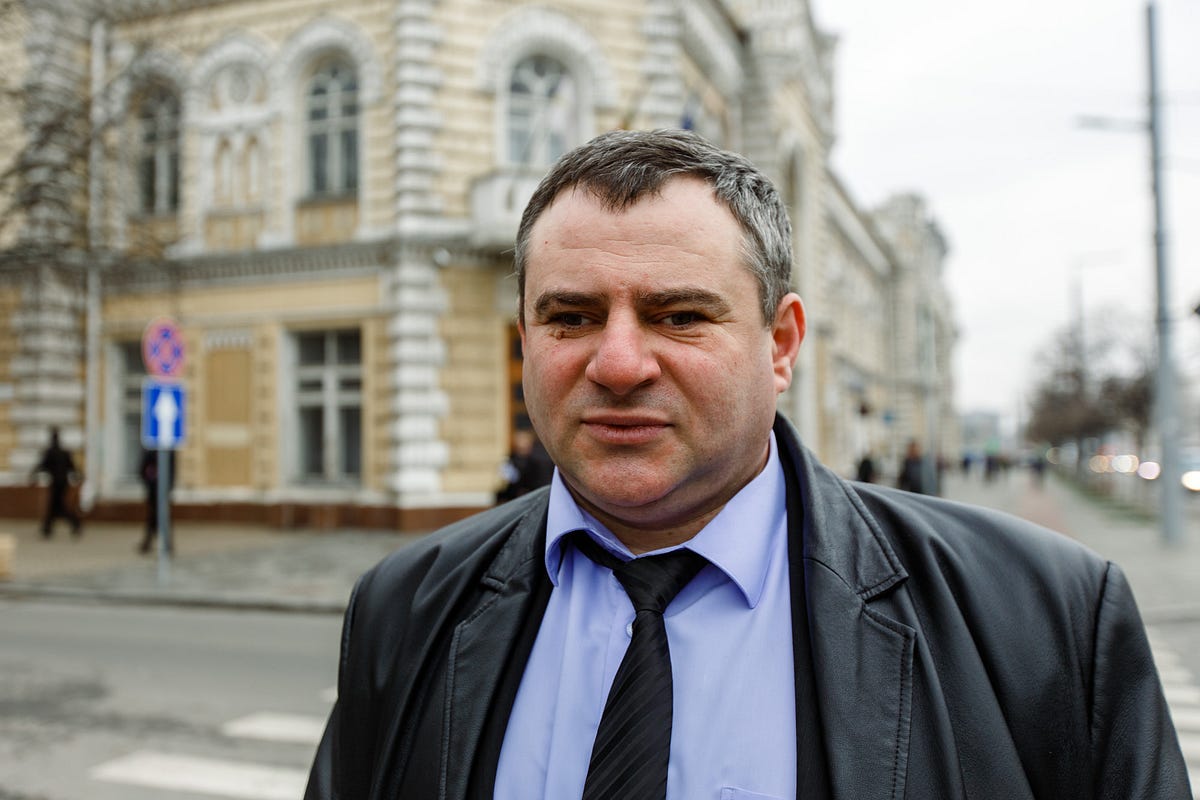
“My colleagues and I noticed in 2016 that during the reconstruction of Chisinau’s central boulevard, the road and pedestrian areas were not adapted for people in wheelchairs, with visual and hearing disabilities, parents with small children, or cyclists.
On behalf of the NGO [Center for the Legal Assistance for Persons with Disabilities] where I work as the director, I’ve sent the Chisinau authorities a request to improve the accessibility of this area. They agreed with some of our proposals, but the rest were rejected on the basis of high cost.
We disagreed with their decision and appealed to the Court, which obliged the Chisinau’s authorities to install sound signals for traffic lights and tactile pavements.
Our efforts have led to setting up a precedent for Chisinau’s authorities. starting in spring 2018, it will be mandatory that all reconstructed streets in the city are adapted for persons with disabilities. In this way, we will ensure that our city will become comfortable and accessible for all of us.”
Article 23. Everyone has the right to work, to free choice of employment, to just and favourable conditions of work and to protection against unemployment.
“I lost my eyesight when I was two years old. Now it’s simply a part of me. My husband is visually impaired, too. My daughter, Anastasia, is just 16 months old.
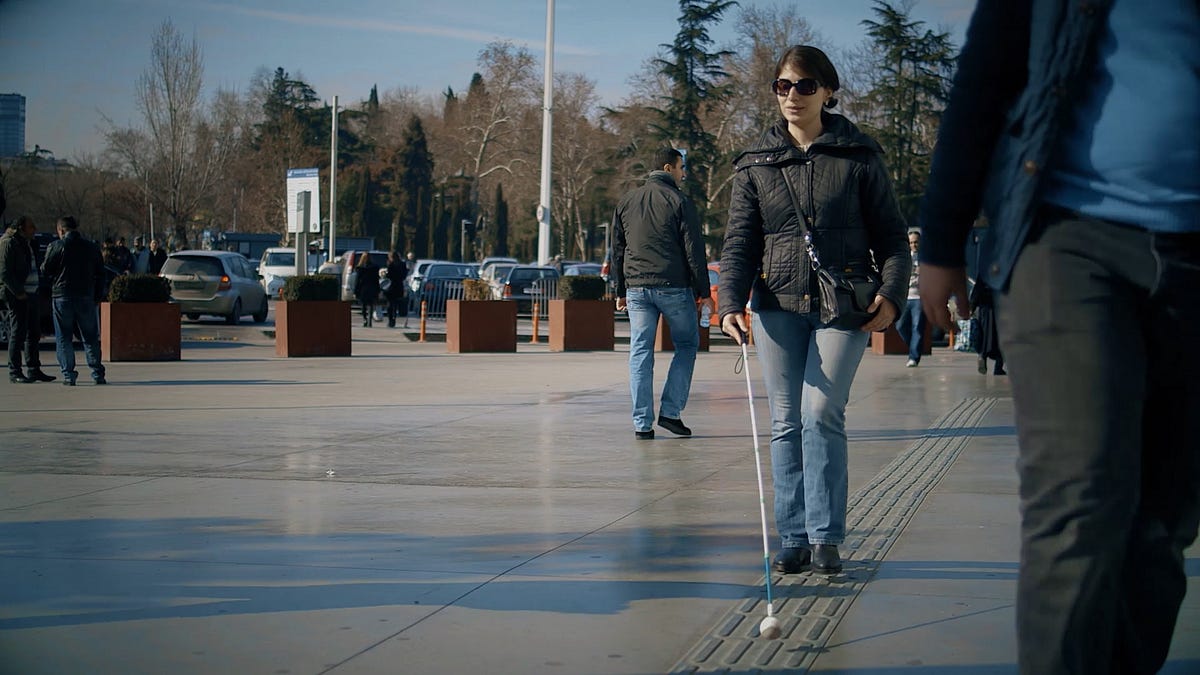

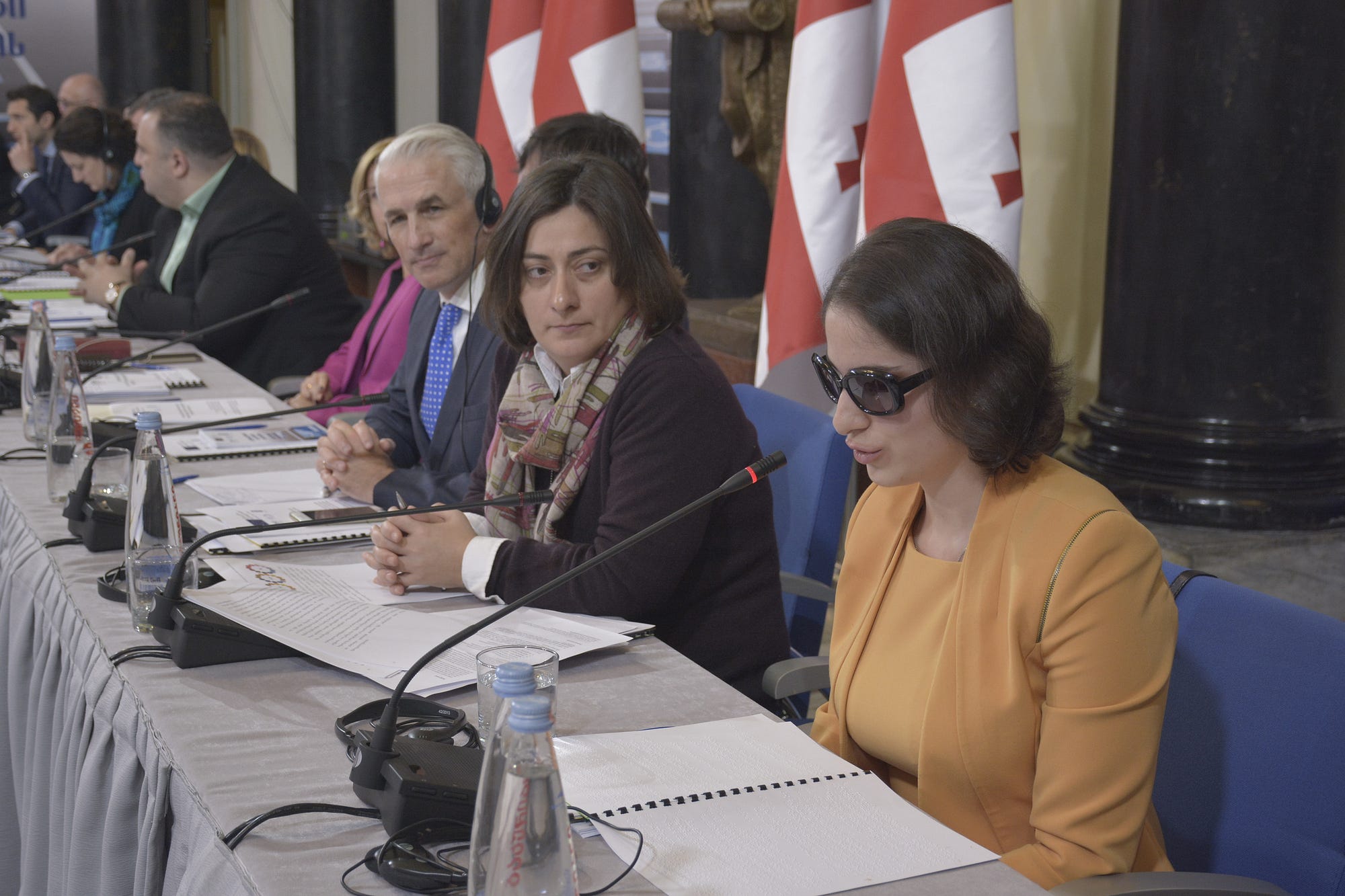
“I lead a non-governmental organization Mariani, focusing on education and other assistance for people with visual impairments. We also help adapt public spaces in Georgia to visually impaired people, such as the Public Service Halls and legal aid offices. We mark the doors and handrails, install tactile maps and pathways to make sure people with visual disabilities can enter the buildings and move around. Currently, we are working with the Parliament of Georgia assisting them to become accessible for all.”
Article 26. Everyone has the right to education.
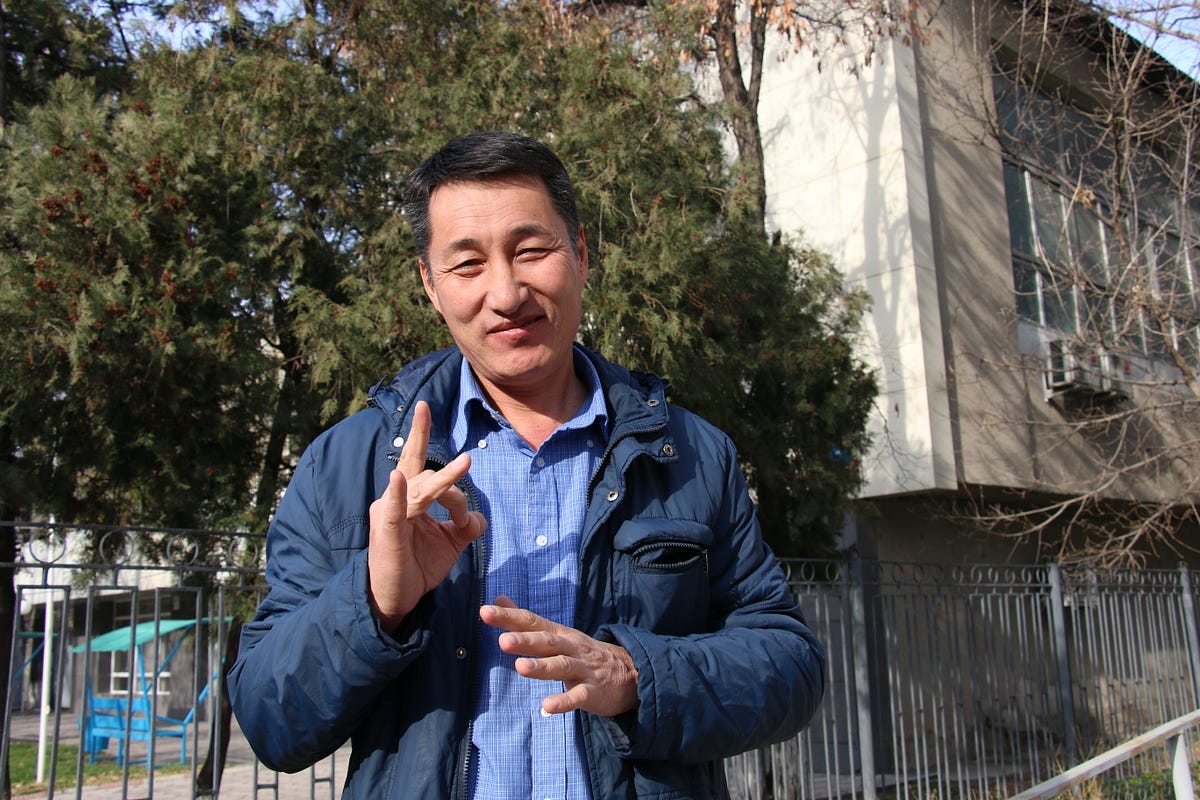
“Our society often speaks of integration, but most people with disabilities have to study and even live separately.
It is difficult to get information from public service providers, because most information is not accessible in sign language, in Braille script or in audio format. If we need to get documents or solve legal issues, we need to hire someone with our own money, and not everyone has the resources for that.
Nobody wants to hire us because employers do not have any special working conditions for people with disabilities. Even educational institutions lack the right infrastructure for us. As a result, most of us are still segregated from the society.”
Promoting human rights is a core part of UNDP’s work does throughout Europe and Central Asia. We work with national partners to protect human rights, especially of the rights of the most vulnerable: minorities, women, people living in poverty, and people with disabilities, among others.
With support from UNDP, many national partners have improved access to justice for all, strengthened National Human Rights Institutions, provided more employment opportunities for marginalized groups, improved social services and voting rights of citizens. We will continue our collaboration with our national partners and we will continue supporting citizens to make their voices heard and to stand up for their own rights, as well as those of others.
Dec 9 2017
https://medium.com/@UNDPEurasia/these-human-rights-defenders-are-standing-up-for-others-and-themselves-9e8306df0ad6

Leave a Reply